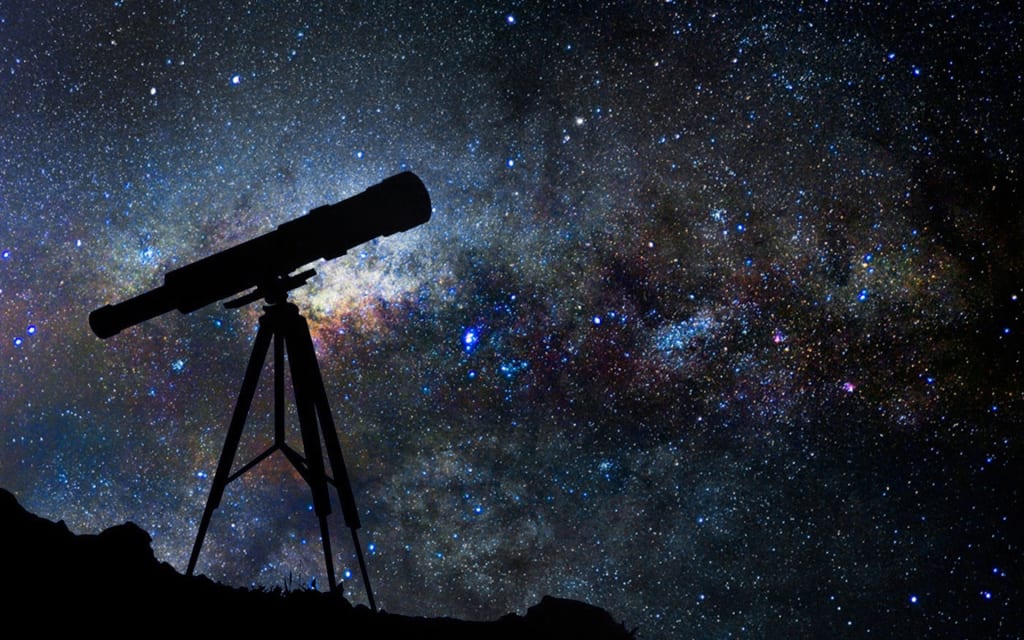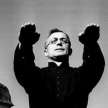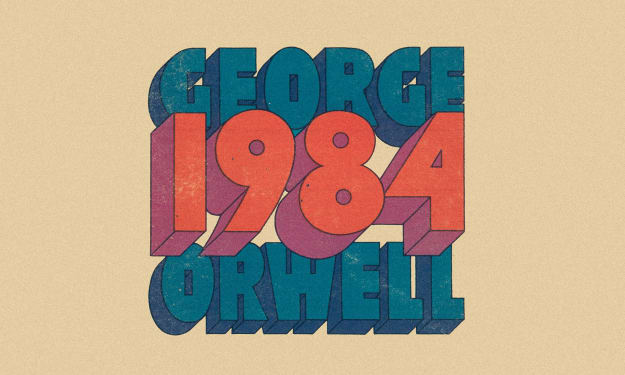Finding Meaning Without Religion
If it is not for us to question why, how can we find meaning without religion?

Traditionally, people have had churches and religion as a support system for life's emergencies. No matter the enormity of the crisis, God and his local representative, one's priest or minister, would be there to serve as a reminder of "what a friend [one has] in Jesus." But people who have grown alienated from religious orthodoxy or even from religion itself, what do they have?
The influence of religion over contemporary culture is at once massive and largely invisible, even indirect in some cases. This is why so much popular culture, particularly but not exclusively in the more serious or avant-garde realms, deals with the absence of meaning or with animalistic pursuits of sex, violence, or other adrenal thrills. Religious or formerly religious people frequently survey the culture at large and see nothing in it for them, since so relatively little of it directly addresses them.
This alienation is, for the religious, easily remedied by turning to the support network of the church. For others seeking meaning but not wanting to deal with a pile of orthodoxy that doesn't speak to them, other means are necessary. If the culture at large can't provide that meaning or support, there remain two options.
The first is to look within, and search for meaning and purpose in one's own thoughts and desires. Despite what the despairing artists and so-called intellectuals would have us think, who moan that all is nothing and there is no meaning, the rebuttal is right there in our own hearts and minds. We can comfort ourselves in times of crisis by reminding ourselves of our best qualities, our dreams for the future, and determining how we can best do our best.
The horrors we see on the news and online are done by people who are not people as we all fundamentally are, but by people whose natures have been perverted by allowing themselves to believe that all is nothing and nothing matters, or who might be led unwillingly to believe such things by chemical imbalances. Leaving out that last possibility (which can be treated with medication), we are left, all of us, with a choice to be good or evil. The capacity for both lies within us all, and it's up to us to choose which road to take.
The second option is to seek support from others. The prophets of nihilism and the empty universe would have us believe this is the sucker bet, but it has never been so, especially now in the internet era. No matter how alienated one may be, and no matter how intractable this alienation might seem, there is an online community where, at least in the comfort of one's own home and computer, there are others in the same boat. Eventually, these others coalesce into communities, all lending spiritual and emotional support. Through these communities' shared experience they find meaning, and the community members derive the strength to carry on through life's crises.
All people are and ever have been is people, and our strength derives equally from ourselves, and the communities formed by the coming together of many different, physically separate selves. We are, as ourselves, both the universe itself and part of a far greater whole constructed of the many other universes that are other people. We are one, out of many, to translate the motto of the United States from the original Latin. When an emergency arises, and all seems lost, we will always have someone to turn to for help, even if that someone turns out to be ourselves.
This myriad of concepts starts to break out the psychological components so often related to religion. But religion does not have a monopoly on all of them. Spirituality existed long before institutionalized religion and will do so long after current perception of organized religion has moved on to a new iteration.
Living Spiritually Without Living Religiously
It is truly amazing how spiritual books can inspire people. Reading spiritual books does not only have the power to bring us closer to our loved ones, but it also helps us connect with the nature, our music, our art, and guide us as we search for the deeper meaning of life and our existence without the need to belong to a particular religion. Oftentimes, being (reading, in our case) spiritual and religious are perceived as a same act. But while spirituality centers on the yearning of the soul to decipher life, religion focuses on a system of beliefs, practices and the existence of supreme being(s). Yes, religion can be a way to express one’s spirituality, but anyone can be spiritual without being religious as well.
So for those who are searching for spiritual but not religious books to help them unravel life’s biggest mysteries, we have created a list of books you should read
Originally published in French, The Little Prince is a book for all ages which had become so popular that it was later translated into many different languages around the world. The story was about a pilot who met a little prince while he was struggling to repair his aeroplane that crashed in the middle of the Sahara Desert. After the little prince’s persistent request of him to draw a sheep, the pilot eventually discovered that he was from asteroid B-612 where he left his proud rose behind. And while on his journey to the Earth, he met a king, a vain man, a drunkard, a businessman, a lamplighter and a geographer—all of them too busy as a ‘grown-up’ that they can’t even appreciate the beauty of simple things such as riding a train anymore. The Little Prince is a book that made a lot of people remember that there is more to life than power, money and other material things. It teaches us a lot about love, beauty, responsibilities, and most importantly, that: “What is essential is invisible to the eye”.
In this book, Don Miguel Ruiz tells us that to live in freedom and true happiness, we only need to follow the four agreements based from the Toltec wisdom which are:
- Be impeccable with your words
- Don’t take anything personally
- Don’t make assumptions
- Always do your best.
The author explained how the values instilled by our parents since childhood, and that we have believed all our lives, were false and just a bunch self-limiting ideas. What we need to do, instead, is to be positive towards ourselves and to others, to accept that each person is unique and sees things differently, to not overthink about what others feel about you and lastly, to do your best in order to achieve your goal.
Eat, Pray, Love is a memoir about the 30-year old Elizabeth Gilbert who, despite having a husband, a perfect home, and successful career, still feels that there is something missing in her life. And so, leaving everything behind, she sets out on a journey to find herself. She learned the art of pleasure in Italy, the art of devotion in India, and was able to observe and establish a balance between the two in Indonesia. This book is considered one of the most inspirational books, and will take you across different cultures and adventures, up until the time when Elizabeth Gilbert finally realized that, “Happiness is the consequence of personal effort. You fight for it, strive for it, insist upon it, and sometimes even travel around the world looking for it”.
The Seven Spiritual Laws of Success is a book which tells us that overworking ourselves to the point of imbalance is not even necessary in achieving our goals, for “A seed doesn’t struggle to become a tree―it simply unfolds in grace”. According to Deepak Chopra, we simply need to follow The Law of Pure Potentiality, The Law of Giving, The Law of Karma, The Law of Least Effort, The Law of Intention and Desire, The Law of Detachment, and the Law of Dharma, to reach our dreams with “effortless joy”. This book encourages us to be in touch with our nature and to experience the joy of being connected to others, to learn how to give much more than we receive, and many other lessons that will nourish our soul.
Jonathan Livingston Seagull is fable about a seagull who, unlike the rest of their flock, sees more to flying than a means of getting food. He takes pride on having the best glide, and speed, and sees the importance of continuously challenging oneself to become better. It gave him immeasurable pleasure to be able to teach the younger seagulls on the art of flying, the power of holding on to your dreams, and following your heart even if it means being alone and despised. Because Jonathan believes, and everyone else should, that “You have the freedom to be yourself, your true self, here and now, and nothing can stand in your way”.
With this book, Eckhart Tolle points out that the key to end both internal and external conflict and to finally achieve peace on earth is to change our ego-based state of consciousness. He explained that it is because of the unhealthy reverence we have for our egos that arguments, envy and discontentment breeds. And only by changing our perspective into a positive one, by accepting ourselves for what we truly are, can we start living with happiness and fulfillment.
Based from Dr. Peck’s own experiences as a professional psychiatrist, The Road Less Traveled is a book that gives us a lot of advice on how to face our problems, and to access our innermost thoughts that will help us grow in life’s every aspect including loving relationships and parenting. And one of the most important wisdom that this book offers to the readers is: “Life is difficult. This is a great truth, one of the greatest truths. It is a great truth because once we truly see this truth, we transcend it. Once we truly know that life is difficult-once we truly understand and accept it-then life is no longer difficult. Because once it is accepted, the fact that life is difficult no longer matters.”
In this book, Rhonda Byrne discusses The Secret that people need to apply in every aspect of their lives. The Secret to good health, wealth, career, relationships and happiness that has been passed on from Plato, Hugo, Beethoven, Lincoln, Einstein. The Secret that has transformed many lives. The Secret that is inside of you, of everyone, just waiting to be discovered. Evidence found all throughout the history including literature, philosophies, and religion were gathered into one book that will teach us “That a man can change himself…and master his own destiny is the conclusion of every mind who is wide-awake to the power of right thought.”
Through Howard Cutler, the 14th Dalai Lama was able to communicate to millions of people and share his wisdom about life. The Art of Happiness is composed of the various conversations and experiences that the authors had regarding the purpose of life, human warmth and compassion, transforming suffering, overcoming obstacles and closing reflections on living a spiritual life. He makes us see that happiness is the purpose of life and how to reach it, but at the same time, warns us that, “The purpose of our life needs to be positive. We weren't born with the purpose of causing trouble, harming others. For our life to be of value, I think we must develop basic good human qualities—warmth, kindness, compassion. Then our life becomes meaningful and more peaceful—happier.”
Everyone must have been expecting this book to come up from the moment they have read “spiritual books”. The Alchemist, which is originally written in Portuguese, had also been translated into various languages ever since its publication. The book was about Santiago, a shepherd boy who travels to the Egyptian desert to find a treasure hidden within the pyramids. Further encouraged by a gypsy, a man claiming to be a king and an alchemist he met on the road, he goes on with his journey where he experiences wealth, falling in love, getting captured, until he finally arrives at his destination, and an ultimate realization. The Alchemist teaches its readers to not be afraid of following their dreams, to take risk, and to “Remember that wherever your heart is, there you will find your treasure.”
About the Creator
Joshua Samuel Zook
Grew up in a religious household. Listened to countless sermons on the wrath of God. An epiphany struck him and he realized no one is that angry, not even God.






Comments
There are no comments for this story
Be the first to respond and start the conversation.